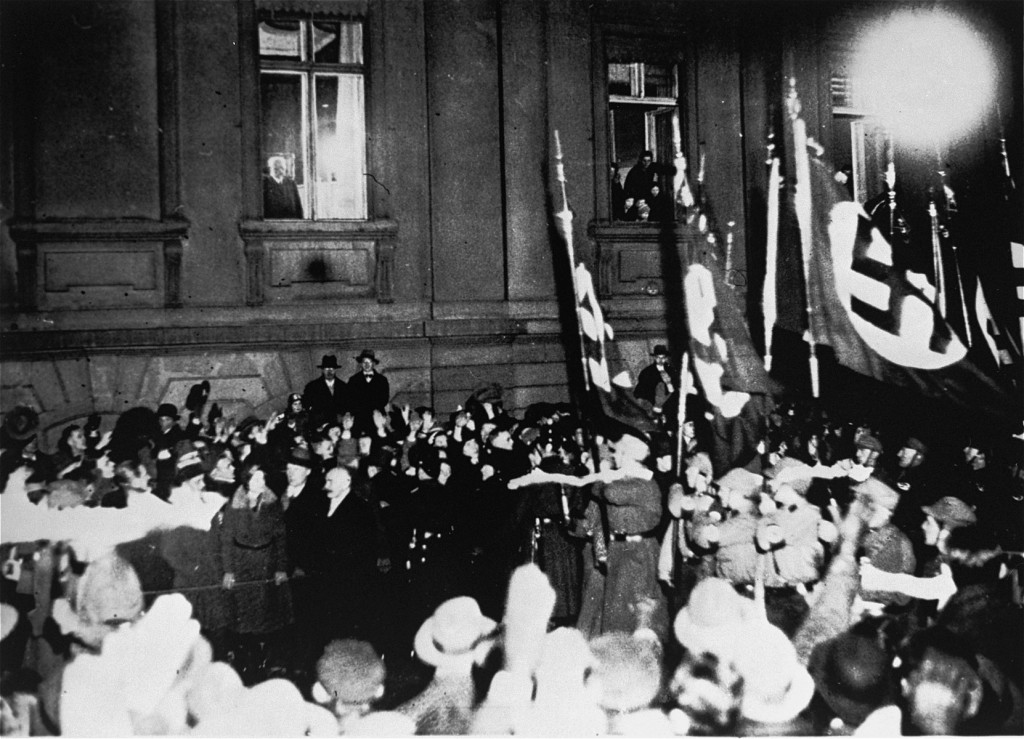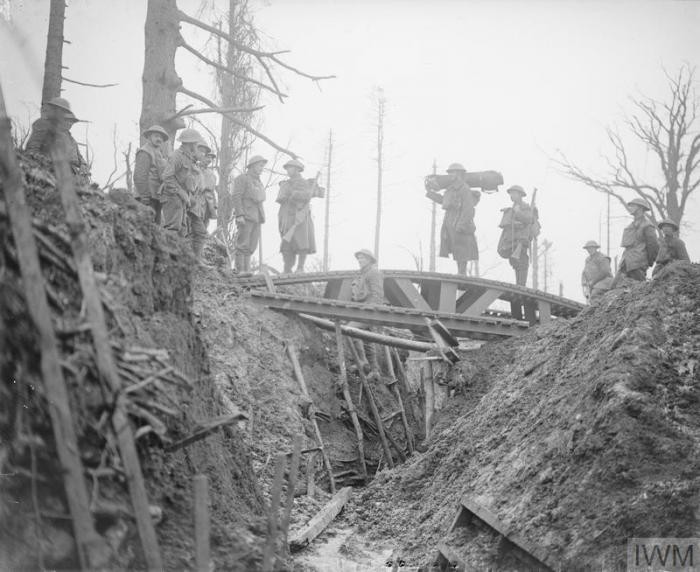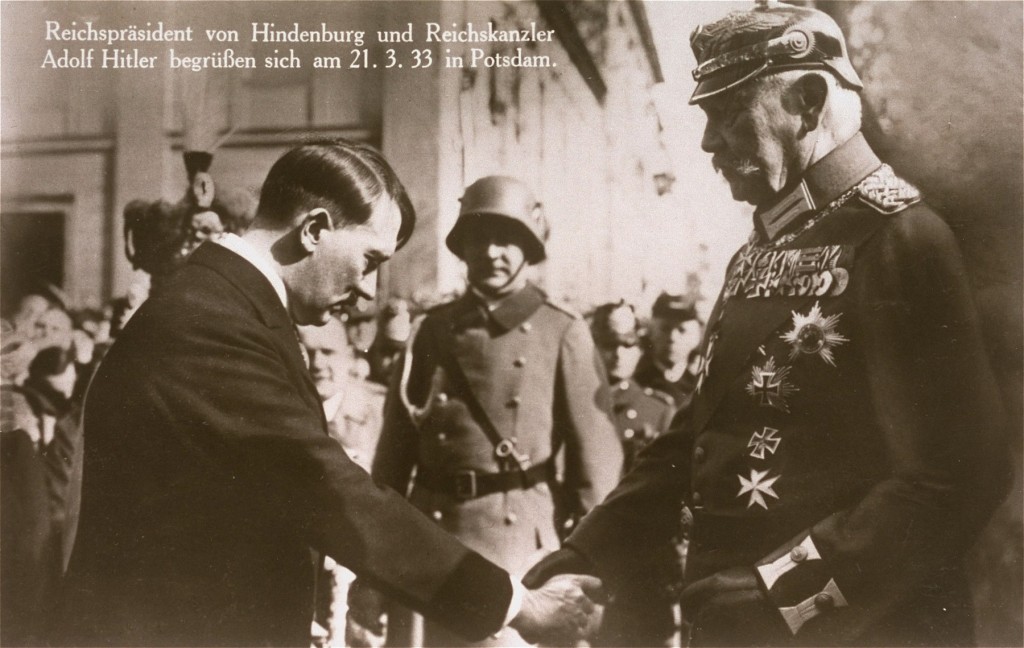
Paul von Hindenburg
Field Marshal Paul von Hindenburg was a German general who gained renown during World War I and later as President of the Weimar Republic. He is most relevant to Holocaust history through his dealings with Adolf Hitler. Although he did not approve of Hitler or his politics, Hindenburg became the man who made him Chancellor of Germany, enabling the Nazis’ takeover of power.
Early Years
Paul von Hindenburg was born to an aristocratic Prussian family in 1847. Following in his father’s footsteps, he became an army officer. Hindenburg fought as a young lieutenant in the Austro-Prussian War in 1866 and in the and Franco-Prussian War in 1870-1871. After serving with distinction in battle, he joined the prestigious German General Staff. He retired as a corps commander (lieutenant general) in 1911.
World War I
In 1914, Hindenburg was called out of retirement to bolster the German army’s efforts on the eastern front during World War I. With General Erich Ludendorff as his Chief of Staff, Hindenburg reversed what would have been a catastrophic retreat. They instead engineered a defeat of Russian forces at the battle of Tannenberg. The partnership of Hindenburg and Ludendorff was extremely successful, and they eventually forced the capitulation of all Russian forces in 1917. They also established Ober Ost [short for Oberbefehlshaber der gesamten Deutschen Streitkräfte im Osten, or "Supreme Commander of All German Forces in the East"]. This quasi-military dictatorship controlled all aspects of life in a large part of eastern Europe. While the occupation was paternalistic and sometimes harsh, Ober Ost sought to bring “civilization” to the east and in many ways realized the quest for Lebensraum, an idea later espoused by Adolf Hitler’s Nazi Party.

As the war turned against Germany in its latter stages, Hindenburg was called to the western front in an unsuccessful last-ditch attempt to turn the tide. But the Germans lost close to a million men and Hindenburg and his staff presided over the retreat of thousands of German soldiers. Hindenberg retired for the second time in 1919, leaving the aftermath of the war and the responsibility for defeat in the hands of the new civilian government. When a parliamentary commission called him to testify regarding the defeat, he pointed to the “Stab-in-the-Back” myth, blaming liberal elements on the homefront for the surrender and suggesting that German military forces had not been defeated.
Politician in the Weimar Republic
The fledgling democratic Weimar Republic immediately faced serious challenges. Among them were crippling economic depression, domestic turmoil (culminating in open rebellion), and a divisive and unwieldy political system which not a few Germans hoped would fail. Liberal parties (including the Socialist and Communist parties) often failed to find common ground with each other or with more moderate parties. The extreme right criticized the government (and each other) at every turn, even with conservatives in control. Constant political chaos made it difficult to govern in an already volatile time.
In February, 1925, Hindenburg was convinced to run for German President in a bid to unify the country. He won largely due to his own popularity with the German public and to a lack of cooperation among the Left. During his administration, Hindenburg struggled almost continuously to create and maintain cabinets that could remain in power and effect change. Frustrated by the chaos and impotence of the Weimar government, he often ruled by decree via constitutional articles allowing him authoritarian powers. This strategy, together with the disunity and unrest of the period, fanned a widespread desire for political stability among the German populace which facilitated Hitler’s rise to power.
Hindenburg and Hitler
By the 1930s, the Weimar government was increasingly challenged from forces on the Right. Hindenburg abandoned some of his more moderate positions in order to appease right-wing critics. In the 1932 Reichstag election, Hitler’s Nazi Party received 37.4% of the vote, the most obtained by any single party. Hitler demanded the Chancellorship as a result. Hindenburg refused. His contempt for the “Bohemian corporal” was not a secret. This rejection humiliated Hitler. When Hitler proceeded to reject the less powerful position of Vice Chancellor, he received a lecture on his lack of dedication to duty from Hindenburg, who allowed their exchange to be leaked to the press. Hitler withdrew his party’s support, forcing yet another round of elections.

The new chancellor, Kurt von Schleicher, could not create a coalition or a successful government. Hindenburg’s advisors convinced him that Hitler must be given the chancellorship to ensure the support of the Nazi Party and a functional government. Despite his distaste for Hitler, Hindenburg made him Chancellor on 30 January, 1933, and gave his Nazi Party two seats in the cabinet. These seats were filled by Hermann Göring and Wilhelm Frick. Hindenburg’s advisors believed that this scenario would allow them to govern behind the scenes. “We have [Hitler] hemmed in,” one said. Yet as one German historian later wrote, “[This] remark should be included in any anthology of famous last words.”
Shortly after the Reichstag fire in March 1933, the German parliament passed the Enabling Act. This measure effectively granted Hitler the same dictatorial powers held by the eighty-five-year-old President Hindenburg. Hindenburg did little to restrain Hitler’s increasing power or to curb his attacks on his rivals and on political and racial targets. With Hindenburg’s death on August 2, 1934, the last legal obstacle to Hitler’s complete power was gone. Hitler’s propaganda machine immediately suggested that the dead Hindenburg had been the Fuehrer’s strong supporter. Against Hindenburg’s express wishes, Hitler saw that Germany’s great military hero was buried at the Tannenberg Memorial with Nazi pomp and circumstance.
Legacy
Hindenburg’s legacy has been mythologized to suggest that he was either a puppet of Hitler or was supportive of the authoritarian ruler. Historical evidence suggests a more complex portrait of a man who rejected democratic principles and used dictatorial, if legal, powers in an attempt to govern, but also of a man who lacked the strength or conviction to powerfully oppose Hitler’s rise to power.
Footnotes
-
Footnote reference1.
Gordon Alexander Craig, Germany, 1866-1945 (New York: Oxford University Press, 1978), p. 568.

